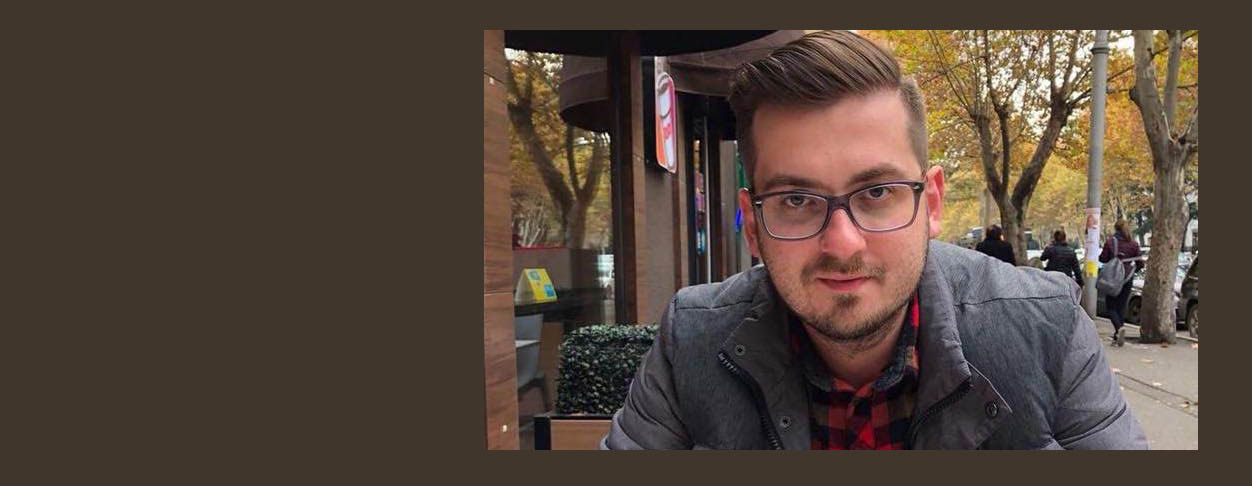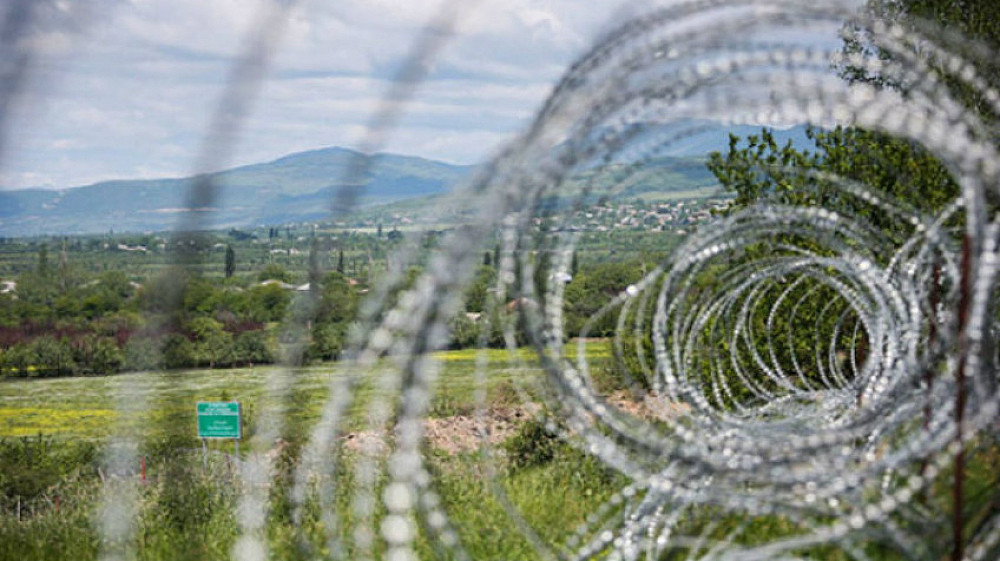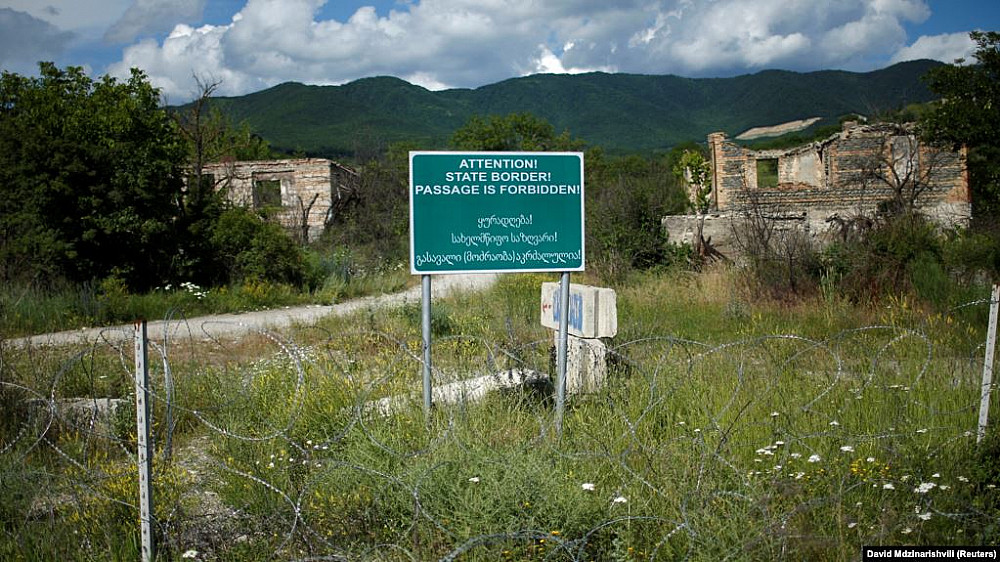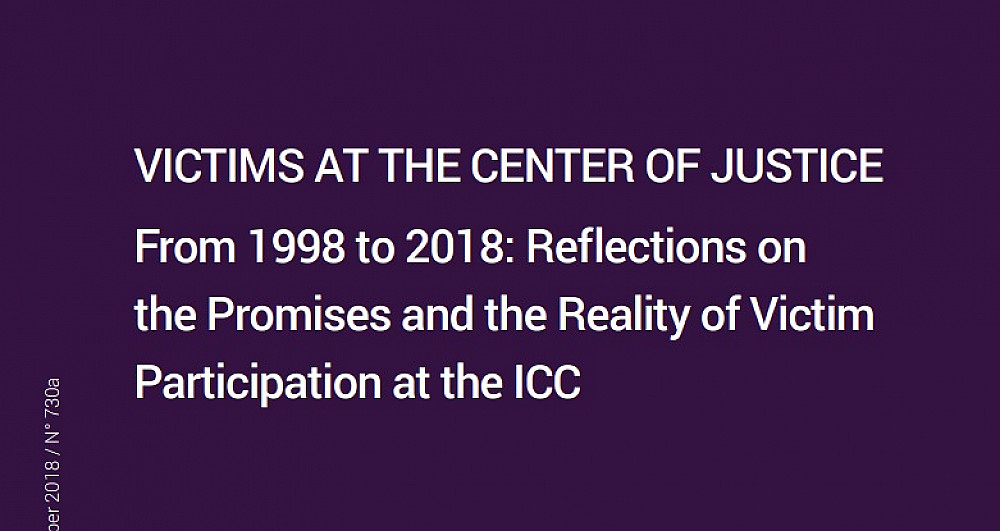
What should Georgia expect from The Hague Court? Interview with Giorgi Chitidze
As the case of the August 2008 Russian-Georgian War is associated with the two courts located in the Hague, initially we should clarify the difference between the proceedings in the International Court of Justice (ICJ) and the International Criminal Court. Let us start with the ICJ, which did not accept the Georgia’s appeal against Russia. Who is responsible for that, as we permanently hear the accusations of the previous and current governments against each other?
The UN International Court of Justice (ICJ) was established based on the UN Resolution in 1945. The Court mostly considers the inter-state conflicts, where the international law was allegedly violated. The ICJ has jurisdiction over three types of cases:
- Inter-state dispute where the parties declare preliminary agreement that the ICJ will resolve their conflict;
- when there is a dispute over the violation of any of the UN Conventions (7 main conventions), there is no need of consent from the state party;
- ICJ prepares an opinion based on the appeal of the UN General Assembly or Security Council over any question related with the international law.
Enforcement of the ICJ decisions is obligatory and the UN Security Council is responsible for their enforcement.
Georgia submitted the application against Russia to the International Court of Justice on August 12, 2008. In its application Georgia alleged that Russia had violated the obligations taken under the 1965 International Convention on the Elimination of All Forms of Racial Discrimination three times in the period of 1990 and 2008, when it invaded Abkhazia and South Ossetia. In its application, Georgia described the role of Russia in Georgian conflicts starting from 1990 and alleged that Russia conducted purposeful policy of ethnic cleansing against ethnic Georgians in these regions through its agents and separatists and requested the Court to put an end to these actions.
On April 1, 2011, the ICJ ruled that it could not consider the content of the lawsuit because Georgia had not exhausted the CERD mechanism. Namely, in accordance to the Article 22 of the Convention, the Court considers only those disputes, “which is not settled by negotiation or by the procedures expressly provided for in this Convention.” The Court shared the argument of the Russian Federation claiming that Georgia had not attempted to settle the dispute with them through negotiations. Afterwards, Georgia had to exhaust all respective procedures before re-submitting the application to the ICJ.
Consequently, Georgia could not lose the case as the Court did not start substantial consideration of the application.
- The Government of Georgia has officially declared that they will try to re-submit the appeal to the ICJ, which considers disputes between the states, only after the Strasbourg Court delivers its ruling and it will be a newly discovered circumstance for the ICJ. How correct is this strategy?
- As it was mentioned, the UN International Court of Justice clearly noted that Georgia had not tried to resolve the conflict with Russia through negotiations. Consequently, Georgia shall prove in front of the ICJ that regardless the negotiations, there were no results. Afterwards, the dispute may be resumed in the ICJ and at the same time it is not directly connected with the Strasbourg Court. I do not exclude that positive ruling of the Strasbourg Court may support Georgia but there is no similar direct correlation [between these courts].
At the same time, the more time passes and Georgia avoids using the negotiation mechanism, it will make it more difficult to resume the dispute. In order to resume the dispute, newly discovered circumstance is necessary and Georgia may need to prove that there is no sense of negotiations. However, even if it is proved, the ICJ will not resume examination of the case 10 years after its first decision. In our case, the deadline is April 1, 2021.
- As for the International Criminal Court of The Hague … reportedly, Prosecutor Fatou Bensouda commenced investigation three years ago, when, as she clarified, she received a letter from Georgia about suspended domestic investigation. Was Georgia interested to move the process in the ICC?
- It is noteworthy that according to the Rome Statute, so-called principle of complementarity is in action, which aims that the case is initially investigated by the State and the ICC does not interfere in it. Simultaneously, the ICC regularly receives information about the ongoing domestic investigation from the member state. The State of Georgia was investigating the case of 2008 August War before the Ministry of Justice addressed the OTP with a letter and informed it that the investigation was facing deadlock. Namely, the appeal of Prosecutor Bensouda to the Court (which became basis of the commencement of the investigation) reads:
“Until recently, the competent national authorities of both Georgia and Russia were engaged in conducting investigations against those who appeared to be most responsible for some of the identified crimes. These investigative measures, despite some attendant challenges and delays, appeared to be progressing. However, in March of last year, relevant national proceedings in Georgia were indefinitely suspended. The Office continues to monitor relevant proceedings in Russia, which, according to the Office's information, are still on-going.”
Besides that, the prosecutor mentioned in her statement that the Ministry of Justice wrote the ICC in their March 17, 2015 letter that peaceful civilians living in the occupied territories are still subjects of violence. Consequently, resumed investigation of the 2008 August War may cause additional aggression and illegal activities from the side of the occupation forces as well as clashes between concrete groups, who have committed violent acts in the conflict zones previously too.
Considering the abovementioned facts, apparently, the State of Georgia refused to enjoy the principle of complementarity because of the abovementioned reasons. However, the full version of the Minister’s letter to the OTP is not publicly available.
- For several days already, there has been scandal over the statement of the Minister of Justice, who stated that in The Hague Court “the State of Georgia will not be found guilty in any war crimes but only Georgian individuals will be held responsible.” What do you think, does this statement have any political grounds or only clarifies the principle of the work of the ICC?
- Formally, the International Criminal Court really does not investigate the inter-state conflicts. However, if the Court brings charges against the Georgian soldiers, politicians or other individuals, who made key decisions during the military operations, the political consequences of the ruling may be very grave. Namely, similar developments may negatively impact the non-recognition policy, de-occupation process and more. Besides that, it will be very painful to see that the statements of the Georgian politicians about the launch of the war, concrete war crimes and others may be used against the Georgian defendants. Similar statements, particularly when they are made by senior political officials, may be used as evidence in the international law.
It is essential to acknowledge and clarify to the society what proceedings are going on in the Hague, what are the potential risks and potential negative outcomes of these proceedings. Consequently, it is inadmissible to use this topic by any party participating in the elections for their election goals, particularly speculations and dissemination of false or unverified information.
- What can be impact of the investigation by The Hague Court in Georgia? How high is the probability that the OTP will issue arrest warrants against some representatives of the Georgian Armed Forces and so-called South Ossetia’s armed formations instead of the Russian citizens? Or, the Court will issue arrest warrants but will not be able to enforce them in case of Russia because the country is not the member of the Rome Statute?
- First of all, we should clarify the essence of the arrest warrant. The purpose of the arrest warrant is to bring concrete individual in front of the court because the prosecutor believes there is well-grounded doubt against the individual that he committed any crime under jurisdiction of the Rome Statute (they are: genocide, crimes against humanity, war crimes or/and aggression). Without bringing the individual in front of the court, the Court will not be able to conduct substantial hearings.
Consequently, if arrest warrants are issued against the representatives of all conflict sides (Russian Federation, separatists forces of the so-called South Ossetia and Georgia), there is high probability that Russia will not hand over its defendants to the Court that means no proceedings will be held against them. So, it is less likely that Russia will hand the leaders of the separatist forces to The Hague Court, while Georgia has taken similar obligation under the Rome Statute.
It is noteworthy that the arrest warrant may be open or public and closed. The closed arrest warrant means when both the defendant and third individuals are not aware that the person shall be arrested. As all member states of the Rome Statute (123 states) are authorized to enforce the decision and arrest the defendant when he/she is in its territory, it may be a way to bring the representatives of Russia and separatists forces to the Court.
On the other hand, if these individuals will never cross the borders of their country and/or occupied territories, the mechanism will be ineffective. At the same time, there were cases in practice of the Court, when the member states (including the third parties) did not hand over the defendants to the Court and thus violated the international obligations.
Consequently, in relation with the enforcement of the rulings, Georgia is really placed in unequal situation.
And in the end, the Court is not obliged to simultaneously issue arrest warrants against all conflict sides. It is important for the Court to have relevant evidence, which will be enough ground for the arrest though proceedings may continue against other individuals. Therefore, hypothetically, only Georgian defendants may be arrested. This risk is more realistic considering the fact that the Russian Federation and separatists forces do not cooperate with The Hague Court and the Court has not been able to double-check the evidence provided by them. Also, the Court cannot conduct investigative activities in the occupied territory or/and in Russian Federation.
- Considering the abovementioned, according to your evaluation, was the decision on denying the principle of complementarity right?
- The Court encourages the states not to deny the principle of complementarity and maximally use it. Thus, the states try and should try to do their best to follow the principle. As for the investigation of the Georgia’s situation, we should acknowledge that it is the first case which concerns the international conflict, where the Rome Statute non-member state and the permanent member state of the UN Security Council is engaged. Consequently, it should be the interest of the State of Georgia to punish those individuals, who implemented the interests of Russia and separatist forces of South Ossetia and committed such grave crimes like: ethnic cleansing of Georgians, murders, torture and rape, deconstruction of property. For that, Georgia shall have permanent representative in the Court, who will be engaged in the daily work of the Court through participation of various committees and working groups and to demonstrate the personal interests of the country.



